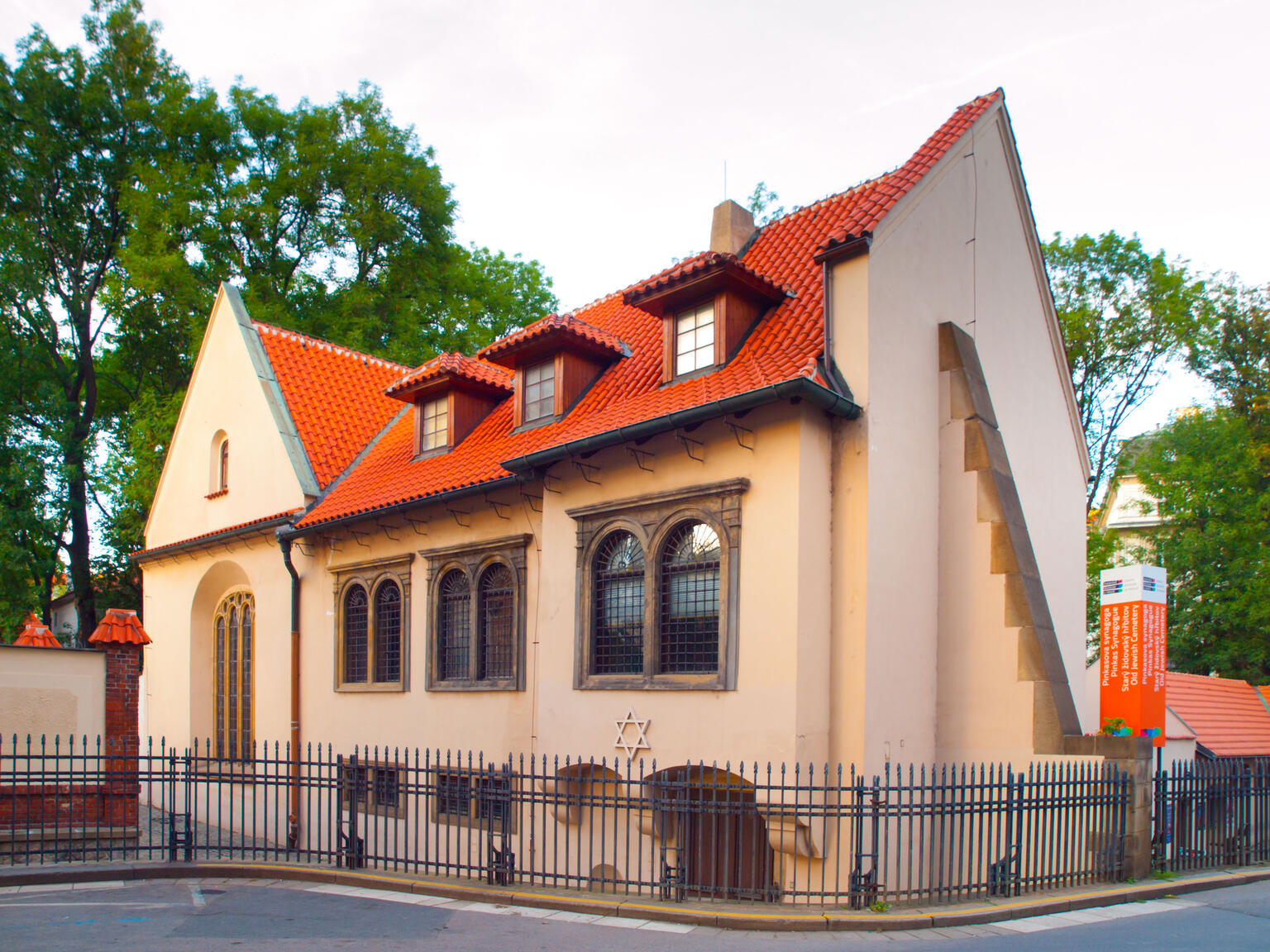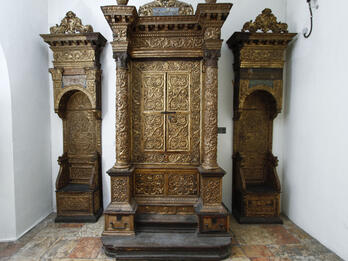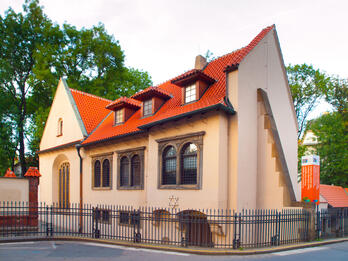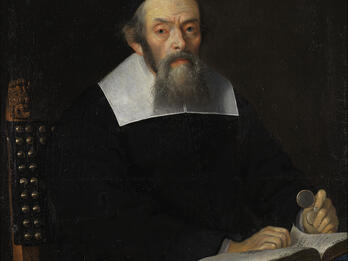Appointment of a Rabbi in Prague
Now we have already informed all those present of the main point: we have come to inform and announce and make known to His Excellency, because this is the custom, what it is his duty toward us. For it is in accordance with these words that we have established a contract with him [see Exodus 34:27], for his own good and for the good of others. We shall explain each clause one by one, so that every single one of them is securely established:
1. He shall be first for all holy tasks; he is raised above all; the loftiest head of the yeshiva and chief court justice. He is the glory to all who are borne by God from birth [see Isaiah 46:3], to instruct us and all Jews who live in this city, and also those who come from a distant country [ . . . ] they are all required to honor him, and without his permission no man shall raise his hand and foot [see Genesis 41:44]. They will submit to him like a student before his rabbi. [ . . . ] He is the one who provides knowledge and explanations to the entire nation in the land, to spread Torah among Israel, to learn and to teach, to maintain a yeshiva where there is support for those who can sustain study, with the help of heaven. [ . . . ] In the time of the House of Study all the leaders of study groups will study from one shepherd from whatever tractate his excellency, our honored lord, will choose to clarify. [ . . . ]
7. The Gaon, teacher of righteousness, will supervise with excellent supervision all the teachers of young boys in our community, may the Rock preserve it, to see that they do their work in good faith, each one in the area of their qualification: whether to read Bible or to teach Talmud. He will oversee all of it with careful supervision, so that their study will be orderly and proper, and that, perish the thought, they do not perform the work of God deceitfully.
8. He will especially ensure that no lad shall learn a craft or any business until he has reached the age of fifteen, and he shall always be in the home of his teacher, and if the teacher says he is not fit to study, the lad is permitted to study a craft or business. [ . . . ]
16. He will also decree upon all the wardens in all the synagogues to watch those who pass by and always miss the hour of prayer, not coming to the synagogue on time, so that such a man will not be considered a member of the synagogue when it comes to an obligation [to pray in public because he is in mourning] and to recite the Kaddish on the anniversary of the death of his parents and the like, unless his absence is because of circumstances beyond his control or illness, God forbid, or if he is traveling or acting on behalf of the community. If his failure to come to synagogue is due to any other reason, he will have to pay a fine to charity three times. Needless to say, those who talk in synagogue during prayers must be removed from the premises, and their names should be announced publicly.
17. He must also keep careful watch on matters of the prohibition of being secluded with a member of the opposite sex, and the laws applying to women, and general matters of prohibitions and permissions, as well as the wine of gentiles and laws of the ‘eruv [usually a formal enclosure made so that items can be carried within it on the Sabbath], and festive meals and the like, including the forbidden mixture of linen and wool, and the proper making of cheese, etc.
18. Furthermore, his honor must have personal supervision over all the religious courts and other jurisdictions in the city, that every single one of them issues just rulings, and that no falsehood will be found in any of them. He must also seek to increase the number of their scribes and their officers.
19. If a man sins against his God by acting in a manner that desecrates the divine name, or commits any other transgression between man and God, his honor must punish the sinner and guilty party for the sin that he committed. This includes both a punishment that applies to his property, and to ostracize him and curse him with an excommunication until he repents and abandons his evil way.
20. However, in certain cases which involve removing someone’s turban and taking away their crown of ordination or anything else which will negatively affect one’s family reputation, his honor will not judge alone, but only at the meeting house together with the members [i.e., the board of directors of the community], may the Rock preserve them. Perhaps, if the vote is tied, his opinion should be counted as two. [ . . . ]
32. The Gaon, may his light shine, will go every single month or every single Sabbath to one of the two large synagogues, where he will be called to the Torah on the Sabbath and the first day of a festival.
33. Regarding the other honorable communal functions, such as issuing writs of divorce and marriages and removal of the shoe [i.e., a ritual exempting a man from the duty of marrying his brother’s childless widow], and covering the heads of virgins with veils before marriage and giving a name to baby girls, he must do all of these, but if he wishes, he may permit others to be honored in his place to ease his burden.
34. The salary of the Gaon, may his light shine, as well as his payment for issuing writs of divorce and marriage and removing the shoe and the like, shall all follow the former custom, and the same applies to the cost of wood for heating, and his living expenses.
35. The Gaon, may his light shine, is obligated every year on a designated day, together with his court, to supervise all regulations of the community, and to enforce them if he finds that they are not properly observed. He must decree, regarding all the customs of the community, that they are to be observed, and that no one may depart from them by even a hairsbreadth, on pain of large fines. In any case, no official may pronounce any curse or malediction or excommunication, not even for a major matter, without his consent.
Credits
Published in: The Posen Library of Jewish Culture and Civilization, vol. 5.







